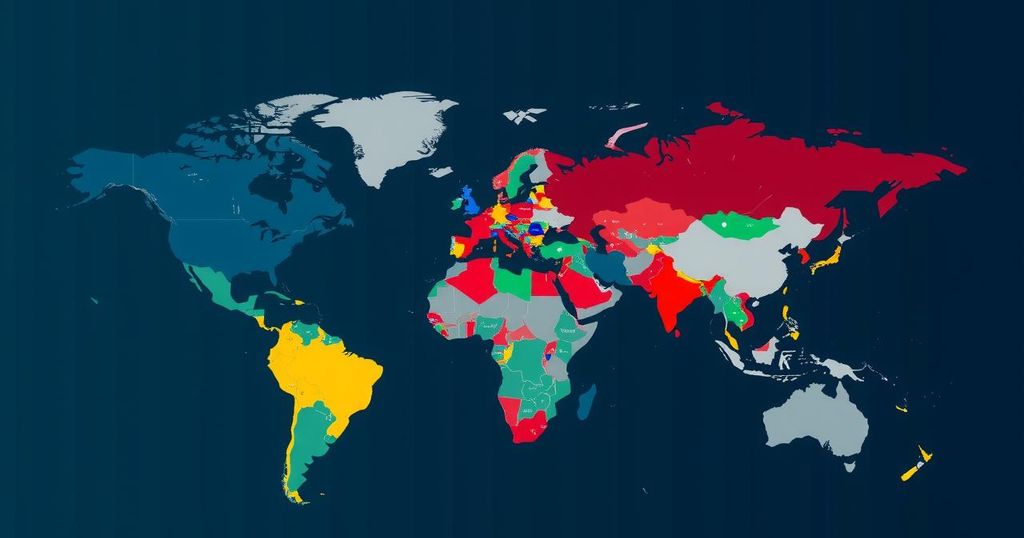In 2024, twelve countries lead global technological advancement, with South Korea ranked first, followed by the United States and Denmark. These rankings, based on metrics including internet use and R&D investments, highlight the importance of innovation and systematic support in fostering technological progress. Each country’s unique contributions showcase a collaborative spirit and a commitment to sustainable development, driving advancements that benefit global society.
In 2024, the landscape of global technological advancement is dominated by twelve countries distinguished by their innovative capabilities and robust internet infrastructure. Topping the list is South Korea, celebrated for its flourishing tech industry, followed closely by the United States and Denmark. This ranking, as reported by Global Finance Magazine, evaluates countries based on several metrics, including internet usage, collective innovation capacity, and government investments in research and development (R&D). The scoring system highlights each nation’s commitment to technological progress, fostering an environment conducive to advancements.
South Korea has firmly established itself as a leader in technological innovation, characterized by high levels of internet access and substantial investments in sectors like robotics and artificial intelligence. The population’s tech-savvy nature fuels demand for state-of-the-art technologies. Moreover, significant contributions from major firms such as Samsung and LG showcase South Korea’s dedication to maintaining its preeminent status in the global tech milieu.
The United States, historically recognized for its scientific breakthroughs, ranks second in global advancement thanks to a vibrant ecosystem of prestigious universities and tech giants such as Apple and Google. The government’s substantial investment of 3.46% of GDP in R&D underpins groundbreaking advancements in sectors ranging from aerospace to renewable energy.
Denmark’s commitment to technological progress is evident through its advancements in green energy and biotechnology, nurtured by a cooperative spirit among its populace and a government that supports digital innovation. Danish firms like Vestas lead in wind energy, reflecting the nation’s commitment to sustainable practices and collaboration.
Switzerland boasts a tradition of scientific and educational excellence, exemplified through its top-tier research institutions like ETH Zurich. The government’s support for start-ups and R&D initiatives has fostered a dynamic environment ripe for innovation, evidenced by advancements in pharmaceuticals and nanotechnology.
Israel is renowned for its adaptability in technology, cultivating advancements in cybersecurity and agriculture. The emphasis on military training has produced a skilled workforce crucial for its burgeoning start-up ecosystem, with notable innovations such as the Iron Dome system and cutting-edge agricultural technologies.
Finland excels in telecommunications and clean energy, driven by a strong education system that focuses on technical training. Its innovative spirit is encapsulated in its contributions to mobile communication technologies and renewable energy sources.
The Netherlands integrates creativity, education, and innovation, producing notable companies like ASML and Philips. A strong educational framework supports a talented workforce, while the country’s history in trade fosters a collaborative tech environment.
Sweden’s advancements are founded upon a solid education system and a cultural inclination towards collaboration and environmental sustainability, exemplified by companies such as Spotify.
Norway’s significant investments in research and renewable energy, along with its commitment to sustainability, underscore its position in global technological leadership.
Singapore leverages its strategic education and governmental support in prototyping advancements in AI, biotechnology, and digital finance, ensuring continuous progression in technology.
The United Kingdom showcases its technological prowess through companies like AstraZeneca and Rolls-Royce, leading in areas like biotechnology and hybrid-electric propulsion systems.
Lastly, Belgium, through investments in sectors like cybersecurity and robotics, strives relentlessly to enhance its competitive stature among global tech leaders.
These twelve nations exemplify a global commitment to technological development, indicating a collaborative spirit that transcends borders and fosters innovation on a wide scale.
The progression of global technology heavily relies on effective collaboration among nations that invest in research and development. In 2024, twelve countries distinctly emerge as leaders in technological advancement, utilizing metrics such as internet accessibility and innovation capacity to benchmark their successes. The analysis provided by Global Finance Magazine underscores the importance of infrastructure and governmental support in fostering these advancements, illuminating the contributions of each nation’s unique approaches.
In conclusion, the twelve countries recognized for their technological advancements in 2024 illustrate the critical importance of innovation, education, and investment in R&D. Their achievements not only signify their individual capabilities but also the power of international collaboration that drives progress in technology. As these nations continue to evolve, they set benchmarks for others, fostering a global environment where innovation thrives and benefits society as a whole.
Original Source: www.worldatlas.com






